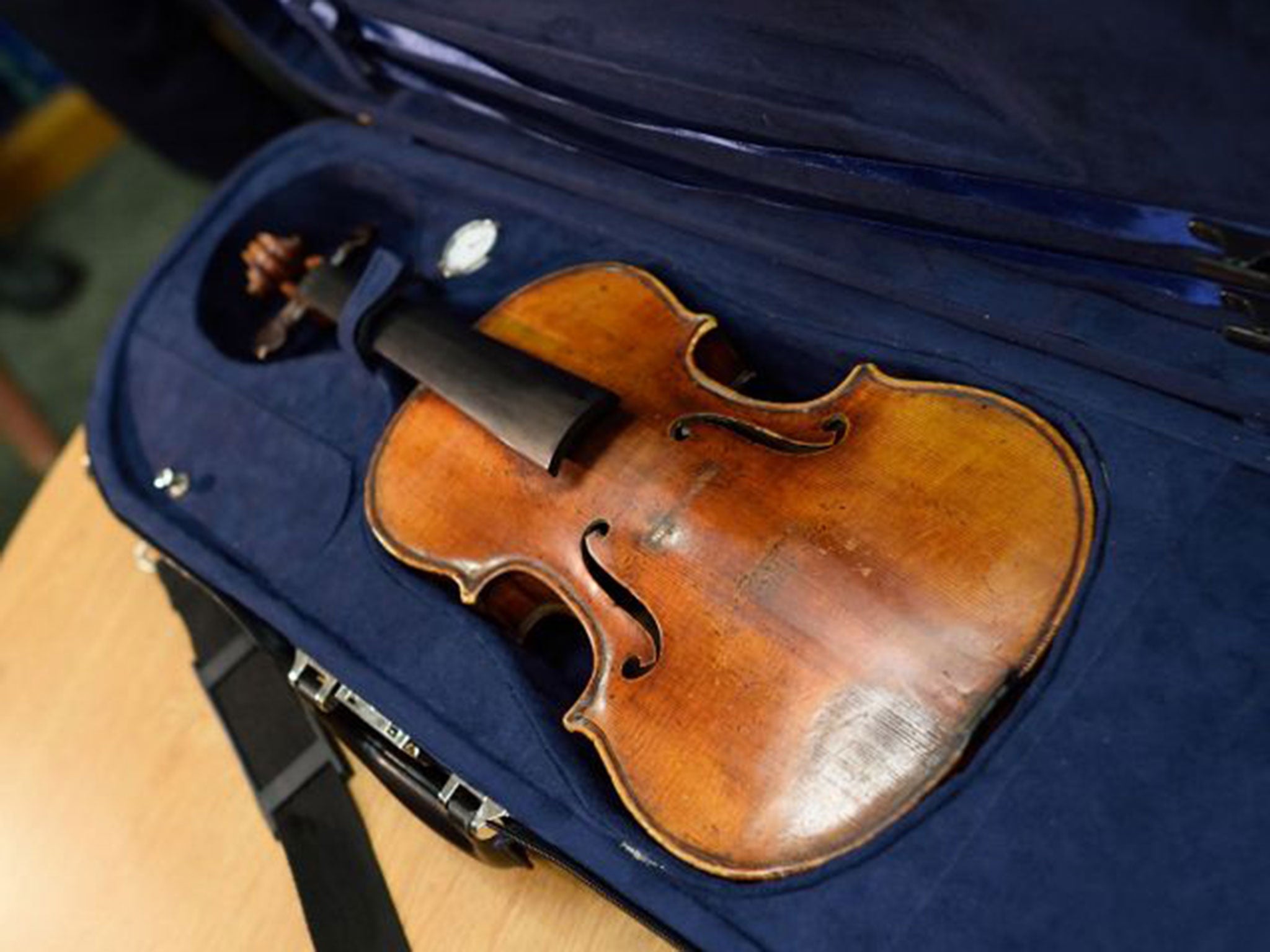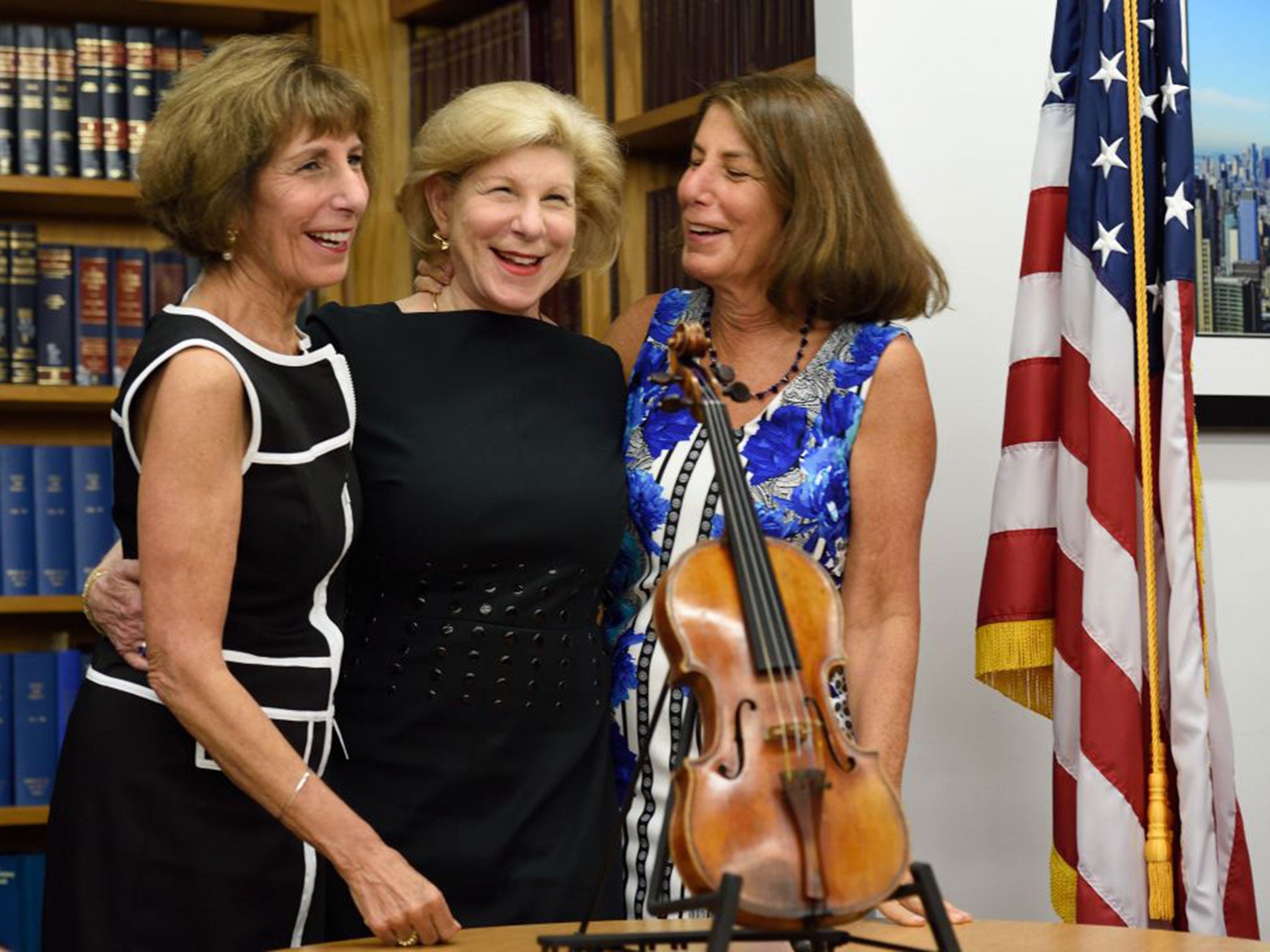Roman Totenberg: Violinist who claimed rival musician stole his Stradivarius is vindicated three years after his death
The instrument - worth millions - disappeared from Mr Totenberg's office in 1980 and resurfaced in June when the ex-wife of Philip S Johnson had it appraised in New York

Your support helps us to tell the story
From reproductive rights to climate change to Big Tech, The Independent is on the ground when the story is developing. Whether it's investigating the financials of Elon Musk's pro-Trump PAC or producing our latest documentary, 'The A Word', which shines a light on the American women fighting for reproductive rights, we know how important it is to parse out the facts from the messaging.
At such a critical moment in US history, we need reporters on the ground. Your donation allows us to keep sending journalists to speak to both sides of the story.
The Independent is trusted by Americans across the entire political spectrum. And unlike many other quality news outlets, we choose not to lock Americans out of our reporting and analysis with paywalls. We believe quality journalism should be available to everyone, paid for by those who can afford it.
Your support makes all the difference.The renowned violinist Roman Totenberg left his beloved Stradivarius in his office while greeting well-wishers after a concert in 1980. When he returned, it was gone.
Its case was later found in the basement of the Longy School of Music in Cambridge, Massachusetts, where he taught. But Totenberg, who died three years ago, aged 101, never saw the instrument again. He thought he knew who stole the violin, but there was never enough evidence to pursue a suspect.
The trail went cold until June, when his eldest daughter, Nina Totenberg, got a phone call from an FBI agent. The agent said he was looking at the violin, which was in federal custody. “I really could hardly believe it at the time,” Ms Totenberg, a journalist, said. “I said, ‘I have to call my sisters. I’ll tell them not to get their hopes up,’ but he said, ‘You don’t have to do that. This is the violin.’”
The violin, known as the Ames Stradivarius, was made in Italy in 1734 by Antonio Stradivari and is one of several hundred such instruments known to exist. They can fetch millions at auction, with one selling for a record $15.9m (£10.3m) in 2011.

Ms Totenberg said the violin surfaced in June when a woman had it appraised in New York and the appraiser immediately contacted authorities. The woman is the former wife of Philip S Johnson, who died in California in 2011. Johnson’s obituary described him as “a noted violinist of 40 years” but did not detail where or for whom he played. Ms Totenberg said Johnson was seen around her father’s office at the time of the theft but, lacking evidence, police were not able to obtain a search warrant.
“There was nothing to be done, and eventually [my father] just moved on and bought another violin,” she said. A child prodigy in his native Poland, Roman Totenberg bought the Stradivarius in 1943 for $15,000 – more than $200,000 in today’s money – and it was the only instrument he performed with until it was stolen. He kept performing into his nineties and taught at Boston University until he died.
“This loss for my father was, as he said when it happened, it was like losing an arm,” said his other daughter, Jill Totenberg. “To have it come back... it’s like having him come alive again.”
The story of its theft and recovery is not uncommon for Stradivarius instruments, which are virtually impossible to sell on the black market, said David Schoenbaum, a violin expert. “There are famous cases of violins that were stolen and remained stolen for many years,” Mr Schoenbaum said. “It’s terribly hard to get rid of one. You’d have to take it to a dealer, and the dealer would immediately call the cops.”
The Ames Stradivarius was in good shape overall, suggesting it had not been played much, Nina Totenberg said. Prosecutors do not plan to charge anyone in connection with the theft and the violin will be returned to the family. They plan to sell it, but not to a collector. “I’m just glad that the violin will eventually be in the hands of another great artist,” she said, “and its gorgeous voice will be heard in concert halls around the country.”
AP
Join our commenting forum
Join thought-provoking conversations, follow other Independent readers and see their replies
Comments